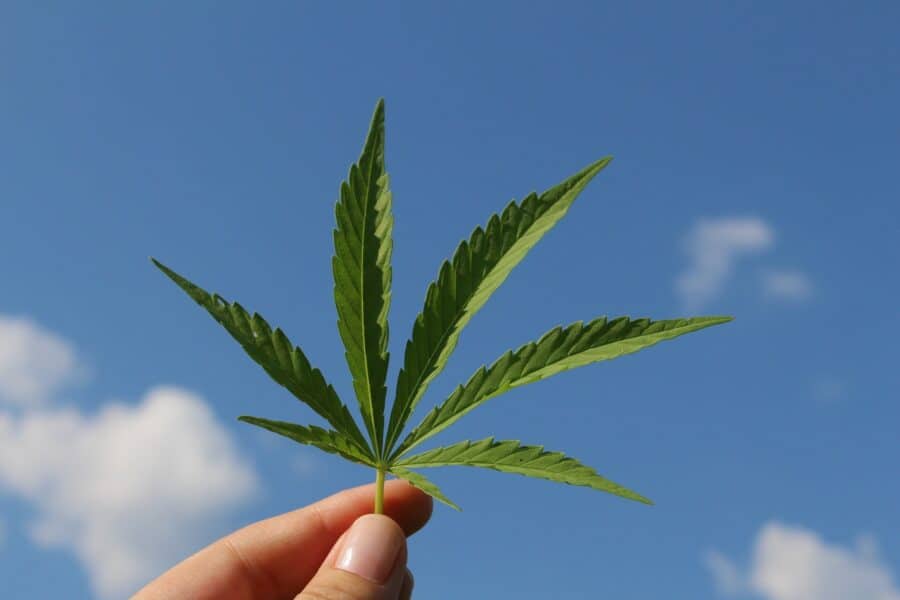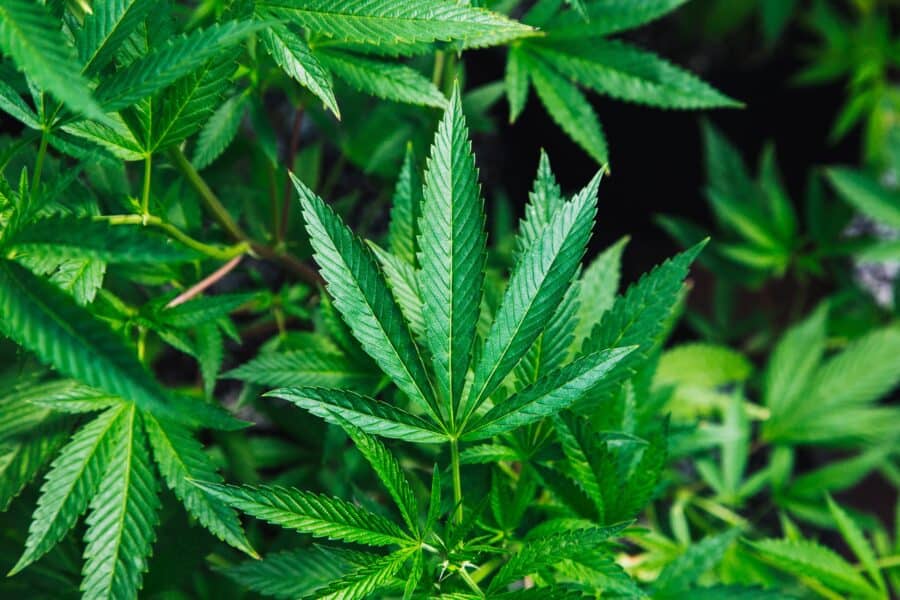What is CBD Oil?
Cannabidiol oil (otherwise known as CBD oil) is the stuff everyone’s talking about right now. It’s everywhere. All over the internet, in your local grocery stores, and on the shelves of your favourite head shops — you can even find them in petrol stations, pharmacies, and beauty stores.
But what exactly is CBD oil and why is there so much hype surrounding it?
CBD oil is made from extracts taken directly from varieties of cannabis (in our case hemp).
The extracts are diluted in carrier oils such as hemp seed oil, medium-chain-triglyceride (MCT) oil, sunflower oil, or avocado oil — this, of course, gives the product its distinct oily liquid texture. Other beneficial ingredients are sometimes included in the formulas too e.g. melatonin for enhanced sleep benefits.
There are three primary extract types used in CBD oils:
- Isolate — contains only CBD and no other beneficial plant compounds
- Broad-spectrum — contains a wide range of cannabinoids, terpenes, flavonoids, and other beneficial plant compounds (minus tetrahydrocannabinol (THC))
- Full-spectrum — contains the “full” range of cannabinoids, terpenes, flavonoids, and other beneficial plant compounds (including THC)
The most popular extract is full-spectrum. Consumption of CBD oils carrying full-spectrum hemp extracts causes the entourage effect, a phenomenon where each plant compound works synergistically within your body to provide a wider range of benefits (at least in theory).
But what are the health benefits of CBD and CBD oils?

What are the potential health benefits of CBD oil?
While we’re not at liberty to make bold and outrageous claims about the health benefits of CBD oil, we can look at the studies surrounding it.
There are a number of existing studies on:
- CBD oil for pain
- CBD oil for anxiety
- CBD oil for rare forms of epilepsy
- CBD oil for multiple sclerosis (MS)
- CBD oil for arthritis
Each of the studies and corresponding research results is incredibly compelling.
CBD has the potential to relieve pain and pain-related symptoms
CBD cleverly interacts with your endocannabinoid system (ECS), a naturally-occurring biological system found in all mammals composed of cannabinoid receptors, endocannabinoids, and enzymes.
Together, this trio helps regulate a large number of your body’s core functions such as sleep, mood, appetite, stress, memory, inflammation, and cognitive thinking. This regulation of core functionality is said to result in internal physiological equilibrium, otherwise known as homeostasis.
There’s a common misconception that CBD directly binds to your cannabinoid receptors. It doesn’t. Researchers and cannabis experts believe it behaves in a much different way.
In a recent 2018 review on CBD oil for pain and pain management, the author looked at research and studies spanning across 48 years.
He notes CBD may help manage and regulate pain and pain perception by interacting with a number of different receptor sites without directly activating either cannabinoid receptors. The receptor sites include:
- Serotonin 1A receptor (5-HT1A)
- Ion channels — vanilloid receptor (TRPV1), TRPA1, TRPM8, and the glycine receptor (GlyR)
- Peroxisome proliferator-activated receptors (PPARs)
CBD’s interaction with serotonin receptors, for example, may induce analgesic effects. Similarly, its activation of the vanilloid receptor promotes an antihyperalgesic effect, thus lessening pain sensitivity and pain perception (in rodent test models).
CBD has proven effectiveness against rare forms of epilepsy
CBD for epilepsy and epilepsy-induced seizures is well-documented and widely recognised.
Epidiolex, a CBD based drug designed and manufactured by British pharma company GW Pharmaceuticals (now Jazz Pharmaceuticals), was released back in 2018. It gained marketing approval from the European Medicines Agency (EMA) later in 2019.
The drug, which comes in the form of an oral solution, specifically targets seizures associated with Lennox-Gastaut syndrome (LGS) and Dravet syndrome — all rare forms of epilepsy.
Currently, there are a number of clinical trials underway to examine Epidiolox’s effectiveness against anxiety, Parkinson’s disease, and psoriatic arthritis.
CBD may help with anxiety and anxiety-related symptoms
Anxiety comes in many forms. Some cases are mild; others are more severe. Many patients often use traditional pharma medicines alongside conventional therapy such as cognitive behavioural therapy (CBT) and hypnotherapy.
However, there’s some scope to suggest that CBD oil for anxiety may be a viable alternative.
A 2018 review of several clinical studies show CBD may have antipsychotic effects on people with schizophrenia and a substantial effect on people with a generalised anxiety disorder (GAD).

What are the possible side-effects of CBD oil?
Side-effects of CBD oil are typically very mild and noticeably subtle — you probably won’t experience any at all (aside from some fatigue and drowsiness in high doses if you’re a first-time user).
The short-term side-effects of CBD oil are:
- Drowsiness
- Lightheadedness
- Fatigue
- Appetite change
- Weight changes
- Nausea & vomiting (in extreme and severe cases)
Long-term side effects, on the other hand, are relatively unknown. Very few (if any) long-term or chronic CBD usage studies exist.
Other side-effects consider before consuming CBD oil
You should approach mixing CBD and certain medications with some caution. Research shows CBD may interact with cytochrome P450, a system within your liver composed of vital enzymes that form or breakdown certain molecules.
CBD’s interaction with the cytochrome P450 system is said to inhibit two specific enzymes: CYP3A4 and CYP2D6.
CYP3A4 is responsible for the metabolism of:
- Lipitor
- Xanax
- Claritin
- Viagra
- Ambien
- Topamax
- Fentanyl
- Prednisone
CYP2D6 is responsible for the metabolism of:
- Antidepressants (clomipramine, desipramine, duloxetine, fluoxetine, etc)
- Neuroleptics (perphenazine, thioridazine, haloperidol, zuclopenthixol)
- Opioids (codeine, tramadol, etc)
- Lipophilic β-adrenoceptor blockers (metoprolol, carvedilol, propranolol, labetalol, and timolol)
CBD, therefore, potentially lessens the effects of each drug listed above. Always consult your doctor or general practitioner before taking CBD with other medications.
How is CBD oil made?
Before CBD oil can be made, the variety of cannabis—in our case hemp—needs to be grown and cultivated.
As soon as the hemp is nice and healthy, it’s harvested ready for extraction. We personally always use organic pesticide and herbicide-free hemp biomass from carefully selected regions in Italy known for their excellent hemp quality.
Our extraction process is meticulous. We use technologically-advanced closed-loop supercritical CO2 extraction techniques, ensuring clean, solvent-free hemp extract (also known as “crude extract”).
Once extraction is complete, we can further process and tailor the resulting crude extract to suit your needs and requirements. Our Premium CBD Oil Drops, for example, can be decarboxylated and de-waxed before being diluted into your chosen carrier oil.
Sounds pretty awesome, right?
